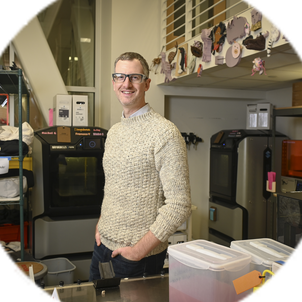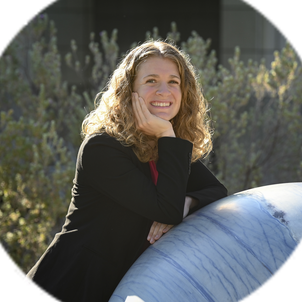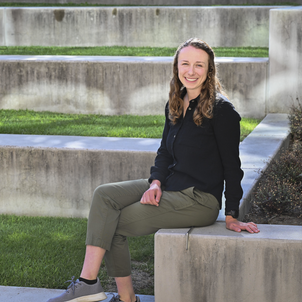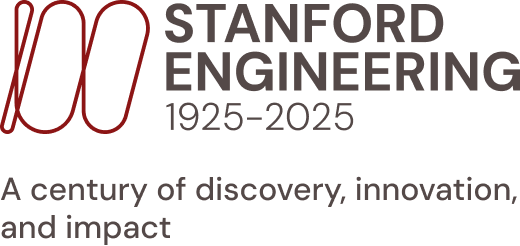For me, being a chemical engineer is about taking things from the lab and turning them into industrial processes that can be scaled to reach a lot of people. As a PhD student at Stanford I designed materials to help stem cells grow better outside the body. This helped me learn to think like a biologist. Tangible Science, the company I helped co-found, develops contact lenses that prevent dry eye. I used my knowledge of stem cells and materials to design the technology. We initially developed it on a very small scale until we found something that worked. I loved taking that technology and converting it into large reactors in our lab facilities. This enabled us to make millions of contact lenses.
Our first product was a coating for rigid lenses, which are used by patients with specific needs. These lenses are usually the most uncomfortable type, but with our coating they are so comfortable, patients sometimes forget they’re even wearing lenses. For some people, our technology is life changing. We’ve treated cancer survivors, who often don’t produce enough tears after chemotherapy, and with our coating they no longer suffer through painful vision all day. Today we have multiple manufacturers across the world making and selling rigid lenses with our coating. Next we’re focused on bringing our soft, disposable lenses to market, so we can help everyone see more comfortably.
I like engineering because it’s meritocratic. There is a well-defined outcome, a good solution or a correct answer. The things you are evaluated on are objective. So I haven’t found it more difficult to be a woman engineer, because I think if you do a great job you’ll be rewarded. As an entrepreneur, it can be challenging because things are more subjective. Even if you have a good idea, there isn’t just one correct path. To be successful you need to be persistent and have trust in yourself and your team.
Related spotlights

Dan Somen

Sonia Martin


